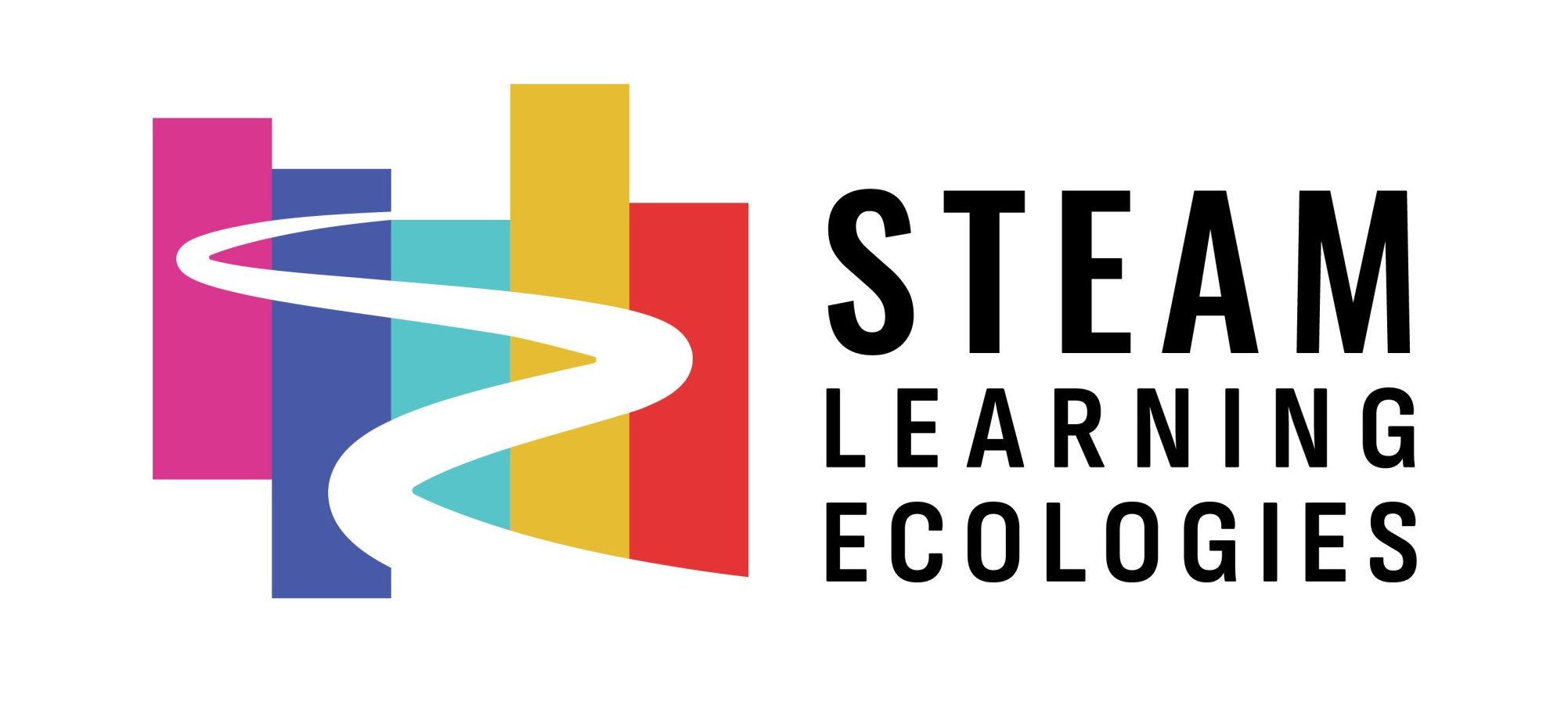
STEAM Learning Ecologies (SLEs)
STE(A)M Learning Ecologies (SLEs) is an EU-funded project (Horizon Europe) developing engaging open schooling-enabled science learning paths for all in learning continuums of formal and informal education settings focusing on inclusiveness. The project highlights the necessary conditions for bringing together all formal, non-formal and informal education actors, as well as enterprises and the civil society and giving all space and motivation to take initiative and central roles. By building on promising previous results, the project proposes a framework that facilitates the creation of inclusive educational synergies in the form of interconnected knowledge ecosystems. The project is also studying the benefits of open schooling as a driving force in European and national policymaking. To achieve these, SLEs is introducing the powerful concept of “learning ecologies” as vehicles for envisaging and realising impactful local open schooling partnerships. A Learning Ecology is the physical, social and cultural context in which learning occurs.
The consortium includes 9 partners and is coordinated by the European Schoolnet (EUN) and it is a well-balanced mix of international organisations, academia, and research centres, with significant expertise and networks of stakeholders.

This project is funded by the European Union’s Horizon programme under grant agreement No 101094648. Views and opinions expressed are however those of the author(s) only and do not necessarily reflect those of the European Union. Neither the European Union nor the granting authority can be held responsible for them.”.

Extending Design Thinking with Emerging Digital Technologies
Exten.(D.T.)2 is a Horizon Europe project that uses Emerging Technologies (ET) to enhance the pedagogical value, sustainable digitization and potential for widedeployment of Design Thinking (DT).
DT is a promising transformative pedagogical innovation based on engaged interdisciplinary learning and the growth of 21st-century (21C) skills for everyone, through entrepreneurial co-creation. Like other such innovations however, it has yet to pull its potential weight in terms of impact in educational transformation.
Exten.(D.T.)2 will use design-based research to support/provide evidence for pedagogical transformation via DT enhanced by ET. It will employ already institutionalized, home-grown and open-access digital expressive media of advanced technical readiness for students to engage in DT projects. It will also uniquely integrate with these expressive media ET i.e. ΑΙ-enhanced Authorable Learning Analytics, Augmented Reality, 3D printing/scanning and virtual robotics, to leverage digital implementation, monitoring and assessment of DT projects by teachers in schools.
Exten. D.T.)2 will invite and inspire teachers and other stakeholders to design and implement such projects, by running original strategic teacher professional development, providing courses and guidelines for them to design, implement and evaluate DT projects in their classrooms.

This project is funded by the European Union’s Horizon programme under grant agreement No 101060231. Views and opinions expressed are however those of the author(s) only and do not necessarily reflect those of the European Union. Neither the European Union nor the granting authority can be held responsible for them.
Empowering Children’s STEM Learning
This project focuses on designing and developing technologies to empower children’s STEM learning through embodied interaction. The project adopts an established approach that is Educational Design Research (EDR) (McKenney & Reeves, 2012). Besides the ambitious research outcomes, this project will facilitate an interdisciplinary collaboration between UC Berkeley and NTNU, and in particular, two labs (i.e., the LCI lab of NTNU and the EDRL lab of UC Berkeley) with a common interest in multimodal learning analytics. The proposed project reflects the mission of the Peder Sather Center Program by developing a platform for research collaboration between UC Berkeley and Norway, a platform that aims to contribute to how technologies can best support children’s learning and development.

This project is funded by the Peder Sather Center for Advanced Study Grant Program.

Surrounded by Science
Surrounded by Science: Learning paths towards science proficiency
The Surrounded by Science project brings together experts in science education research, science centres and museum educators, providers of outreach and informal learning activities, strong user communities and policymakers in Europe to design and develop a systematic assessment methodology that will analyse the impact of out-of-school science activities. By conducting field studies and other innovative data collection methods, the project will assess the impact of specific out-of-school activities. The project will draw from a digital toolbox of innovative research instruments to collect data from citizens actively participating in science-related activities.
The Surrounded by Science project is coordinated by the University of Twente in the Netherlands and partnered by seven organisations from Greece, France, Portugal, Italy, Belgium, Israel and Norway.

The Surrounded by Science project has received funding from the European Union’s Horizon 2020 Research and Innovation program under Grant Agreement no. 101006349. This Website reflects only reflects the author’s view and the European Commission is not responsible for any use that may be made of the information it contains.
DiCoTe
Increasing professional Digital Competence in ECTE with focus on enriching and supporting children’s play with coding toys
DiCoTe meets the urgent need to enhance professional digital competence in Early Childhood Teacher Education (ECTE). Digital professional competence in ECTE and in ECECs has been highly prioritised by the Government during the last decade. Despite these efforts, it has been reported that teachers in Norwegian ECECs do not have the professional digital competence that is required for adequately supporting children’s play with technology. DiCoTe aims to increase Norwegian ECTE teachers’ and ECTE students’ professional digital competence by developing resources for ECTE and implementing these resources in Norwegian ECTE. These resources will focus on enriching and supporting children’s play with technology in ECEC. These will be centred around play with coding toys that children aged 3-5 years, in cooperation, can programme by giving logical messages to a robot intuitively via direct interaction with the toy, without the use of screens. The resources will be developed in partnership among ECTE teachers, ECTE students, ECEC teachers, ECEC owners and researchers.
Partners in the DiCoTe project are: University of Stavanger (UiS), Norwegian University of Science and Technology, Western Norway University of Applied Science, Aalborg University (Denmark), Queen Maud University College, Sandnes Municipality, Røros Municipality, Melhus Municipality, The Science Factory in Sandnes, Didactic Digital Workshop at UiS and The Norwegian Centre for Mathematics Education in Trondheim.

The DiCoTe project has received funding from the Research Council of Norway.
SWELL
SWELL – Sustainable Built Environments for better Health and WELL-being.
The motivation for SWELL is the need for a new environmental conceptualization of public health. The main objective of the project is to nurture health and well-being in urban environments, by addressing the complex interaction between individual humans’ well-being and the built environment and through technological and space innovations. The interdependency of health, environmental and societal issues crave for new overarching approaches. The envisaged research will demonstrate how focused interdisciplinary research on multi-sector interventions and policies, innovative research methodologies and technologies can make a systemic change.
SWELL includes scientists within the fields of Health and Medicine (MH faculty), Information Systems and Data Science (IE faculty), and urban Facility Management (IV faculty). Interdisciplinary, cross-professional and multi-sector collaboration and Urban Living Labs will be employed as vehicles for achieving greater social and economic goals.
This project is funded from NTNU’s Interdisciplinary Sustainable Initiatives
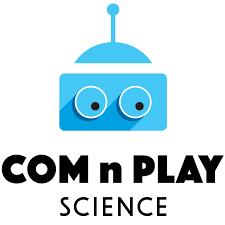
COMnPLAY-Science
Learning science the fun and creative way: coding, making, and play as vehicles for informal science learning in the 21st century (COMnPLAY-Science).
The COMnPLAY SCIENCE project aims to help Europe better understand the new ways in which non-formal and informal science learning is taking place through various coding, making, and play activities that young Europeans (children, adolescents and young adults) are nowadays increasingly engaged with, outside school and higher education science classrooms, beyond the formal boundaries of science education.
Coordinated by LCI NTNU, Norway and with partners from 10 European countries (Austria, Finland, Germany, Greece, Malta, Netherlands, Norway, Spain, Sweden, UK)

This project has received funding from the European Union’s Horizon 2020 research and innovation program under grant agreement No 787476. This Web site reflects only the authors’ view. The Research Executive Agency (REA) and the European Commission are not responsible for any use that may be made of the information it contains.
Xdesign
Cross-Analytics Driven Design to Enhance Learning Experience
The challenge and vision of this seed-project is to provide rich and integrated knowledge on how to combine action-based (e.g., clickstreams) and physiological data-streams (e.g., brain activity), thus creating “cross-analytics”, to design meaingfull learning experiences. Xdesign is methodologically rooted in Human-Computer Interaction (HCI) and learning technologies. Xdesign’s research methods combine empirical, analytical, theoretical, and design approaches, all with focus on the relationship between user-generated data and their design capabilities to amplify human needs and capacities.

This project is funded by the Research Council of Norway.
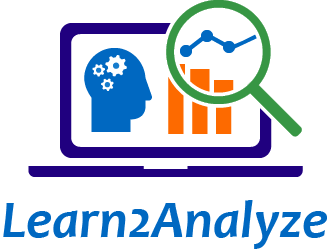
Learn2Analyze
An Academia-Industry Knowledge Alliance for enhancing Online Training Professionals’ Competences in Educational Data Analytics (Learn2Analyze).
The goals of the Learn2Analyze project is to:
- Enhance existing competence frameworks for instructional designers and e-trainers of online courses with new Educational Data Literacy competences for using emerging Educational Data Analytics methods and tools.
- Develop and evaluate a series of professional development Massive Open Online Courses (MOOCs) for cultivating these competences with emphasis to combining theory and practice in the form of authentic work-oriented tasks.
The Learn2Analyze consortium is an international Knowledge Alliance of six organisations from five different European Union countries (Greece, Norway, Germany, Italy and Ireland) and one partner from Australia and three global eLearning market leaders of online course management systems with educational data analytics capacities (including Moodle, IMC’s Learning Suite and eXact Learning).
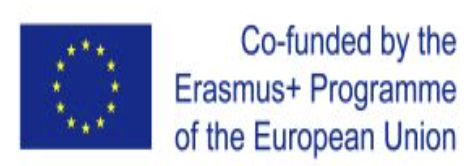
Knowledge Alliances, Agreement n. 2017-2733 / 001-001, Project No 588067-EPP-1-2017-1-EL-EPPKA2-KA).
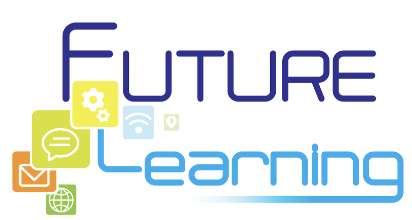
Future Learning
Orchestrating 21st Century Learning Ecosystems using Analytics
Learning analytics allow instructors and researchers to discover important learning episodes and phenomena (e.g., moment of learning/misconception), get better understanding of learner characteristics/needs; and understand the features that make the learning material effective. In Future Learning we will leverage learning analytics capabilities to formulate a conceptual framework for assisting researchers and instructors in improving the orchestration of e-learning tools and practices as well as harmonizing heterogeneous learning analytics streams. The aim of the project is to investigate how the insights of learning analytics can inform us to better orchestrate different e-learning tools and learning practices. In particular, we want to explore:
- What kind of learning analytics can help orchestrate a learning ecosystem?
- How can different learning analytics be integrated to improve educators’ decisions?
- How do integrated learning analytics contribute to the creation of more meaningful and efficient set of technologies for learning?
- How can different technologies be coupled to help students overcome the difficulties they face while keeping them engaged?

This project is funded by the Research Council of Norway.
Adapt-IT
Adaptive Learning Analytics to Support Information Technology Education (Adapt-IT).
Adaptive learning can foster the creation of meaningful learning experiences, since “one-size-does-not-fit-all” and research has shown that the students’ learning experience and performance can be improved through adaptive e-learning environments that suit their needs. Adaptive learning environments can automatically build a visual presentation of students’ learning progress and provide different learning analytics reports. AdaptIT will support various programming languages courses, like Java and JavaScript; covering various IT courses. The goal of the project is to visualize the state of individual student’s knowledge and present the visualization to students, instructors and academic advisors. This helps students in facilitating their metacognitive activities and promoting self-reflection and awareness.
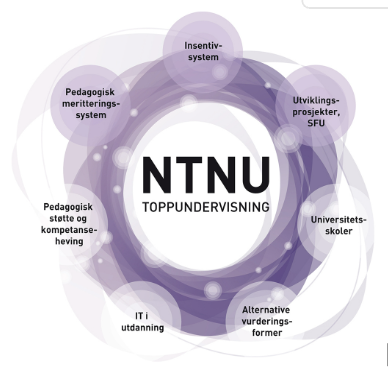
This project is funded by NTNU’s Excellent Education program (NTNU Toppundervisning).
Cognition 2.0
Cognition 2.0: Physiological and Contextual Computing for Augmenting Human Cognition
The purpose of Cognition 2.0 is twofold: (a) to bridge the cognitive gap by building and deploying a “cognitive information layer” in-between human and machine, responsible for informing the machine side about user’s cognitive states and adapting ongoing human-machine interaction, respectively; and (b) to serve as an application framework, encompassing design and development guidelines for future cognition-aware applications. For realizing these objectives, Cognition 2.0 will draw on an interdisciplinary approach that combines state-of-the-art knowledge and methods from the fields of Contextual and Physiological Computing, Artificial Intelligence, Computational Neuroscience, and Cognitive Psychology.
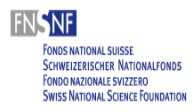
This project is funded by the Swiss National Science Foundation.

Excited
Centre for Excellent IT Education (Excited) is one of the eight national Centers for Excellent Education (SFU) in Norway, granted and funded from the National Agency for Quality in Education (NOKUT). Excited focuces in innovative technologies and practices in order to support CS education.
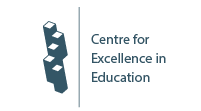
This project is funded by the National Agency for Quality in Education (NOKUT).
